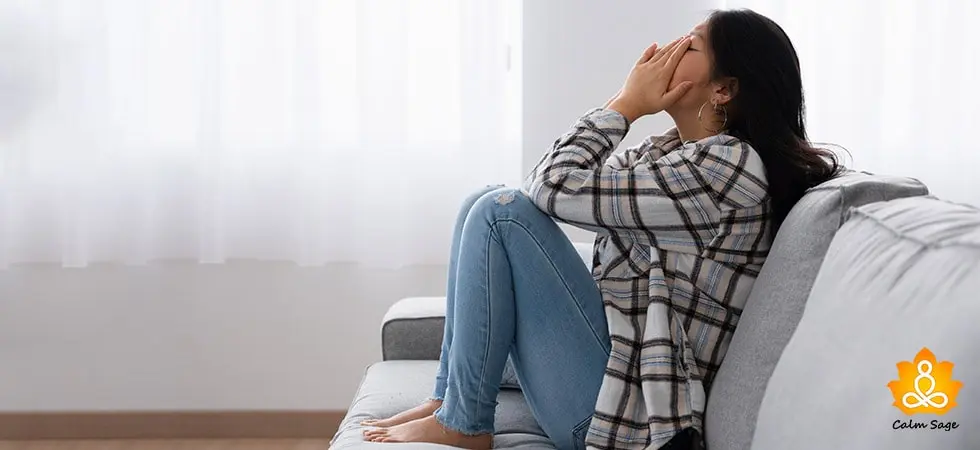Geriatric Depression (Depression In Older Adults): Signs, Causes, Treatment, And More

Someone on the internet appropriately quoted, “You look happy but you don’t feel happy, that’s what depression does to you.” And, I felt this quote deeply when I was reading about depression in older adults. In context to this quote, older adults might look happy from the outside but you never know what’s going inside until and unless you help them to communicate their feelings.
Depression in older adults (Geriatric Depression) is quite common and the sad thing about depression in older adults is that only 10% of them get diagnosed and proper treatment for it. The only reason behind the small number is that they show symptoms differently (as I said they might look happy but you never know what’s going on inside).
Moreover, research shows that symptoms of depression in older adults get confused with the ongoing multiple illnesses and the after-effects of medicines.
In this blog, we will read about everything we must know about depression in older adults so that we can help them in an appropriate way.
So, let’s get started.
Differences between Depression in Older Adults and Younger Adults
Indeed, depression affects everyone differently especially when there is an age bar. Meanwhile, people can have smiling depression as well; depression in older adults is different from other depression types. It can go along with other chronic mental illnesses or physical disabilities. Moreover, depression in older adults is related to a high risk of heart disease.
This results in a person’s capability to rehabilitate. Studies show that older people living in nursing homes show the highest percentage of depression and other mental health issues. This is why it is important to always differentiate, show concern, and get diagnosed and treated for depression in older adults (even if the signs are mild).
Signs and Symptoms of Depression in Older Adults
Below are some common signs and symptoms of depression in older adults:
- Chronic or constant tiredness
- Insomnia and experiences trouble sleeping
- Irritated or always grumpy
- Constant confusion
- Reduces focus or concentration
- No longer enjoy activities he/she used to enjoy
- Loss of appetite or changes in weight
- Feelings of hopelessness, worthlessness, or guilty
- Chronic physical pain and aches
- Having suicidal thoughts
- Sadness
- Fatigue
- Crying spells
- Apathy
- Social withdrawal
Causes of Depression in Older Adults
Research shows various factors behind the development of depression in older adults. But, most of them show a genetic link with the disorders. Moreover, there are social, biological, and psychological factors that contribute to depression in older adults. Research shows that below are some common factors that might result in depression in older adults:
- Family history of depression
- Low levels of key neurotransmitters (like norepinephrine and serotonin)
- Traumatic life events (abuse)
- Grief (death of a loved one)
Below are some complications related to depression in older adults:
- Social isolation
- Limited mobility
- Experiencing mortality
- Financial issues
- Retirements
- Substance abuse
- Death of a partner or friend
- Divorce
- Loneliness
- Widowhood
- Chronic physical health conditions
- Disability
- Dependence
- Damage to body image
- Fear of death
- Other illnesses
Moreover, risk factors associated with depression in older people are:
- Being female
- Being single, divorced, widowed, or unmarried
- Lack of social support
- Stressful life events
The Relation of Depression and Insomnia in Older Adults
Insomnia is often related to depression in older adults. Insomnia is considered a risk factor for returned depression, especially in older adults. In order to treat insomnia, your therapist or psychologist may avoid some medications (like benzodiazepines).
Moreover, experts relate depression and insomnia because of the hormone melatonin or a low-dose formulation of the Silenor (tricyclic antidepressant doxepin). Therefore, different or specific medications are prescribed to the elderly. If there is no improvement in insomnia (in the context of depression), psychologists may prescribe psychotherapy as well.
Treatment Options for Depression in Older Adults
There are various treatment options available for depression in older adults that includes psychotherapy, counseling, medication, electroconvulsive therapy, or brain stimulation. In some cases, a combination of these options can also be used by the psychologist. It all depends on the severity of symptoms, past and ongoing treatments, and other overall factors that impact the level of depression in the elderly.
1. Psychotherapy
Psychotherapy is the most common and effective treatment option for depression in older adults. Psychotherapy includes self-help or involvement in support groups. Psychotherapy is specially designed for those who do prefer medication and have mild symptoms due to stressful life events (like the loss of loved one or home relocations).
Get 20% Off on Betterhelp Appointment
2. Antidepressants
Antidepressants like selective serotonin reuptake inhibitors (SSRIs), serotonin and norepinephrine reuptake inhibitors (SNRIs, and serotonin modulators and stimulators (SMS) are often prescribed to manage the symptoms of depression in older adults.
3. Electroconvulsive Therapy (ECT)
ECT is one of the effective and safe methods for treating depression in older adults. When older people do not prefer taking medicines, ECT comes into the picture.
I hope this blog helps you to understand depression in older adults. Comment down and share your views on the same. For more such content, connect with us on all social media platforms.
Thanks for reading!




















